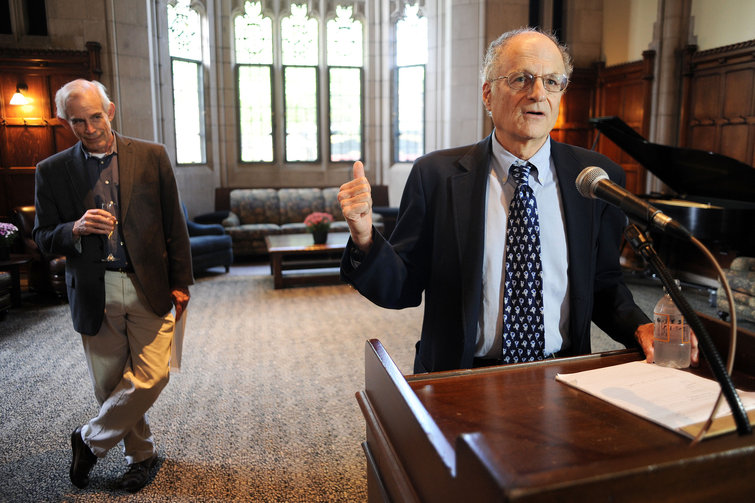
In 2011, Thomas Sargent won the Nobel prize in economics. But in 2007, he gave a graduation speech to Berkeley undergraduates that still stands as one of the greatest, shortest introductions to economics — and to life.
He began with a simple promise. "I will economize on words," he said. And he did.
Economics is organized common sense. Here is a short list of valuable lessons that our beautiful subject teaches.1. Many things that are desirable are not feasible.2. Individuals and communities face trade-offs.3. Other people have more information about their abilities, their efforts,
and their preferences than you do.4. Everyone responds to incentives, including people you want to help. That
is why social safety nets don't always end up working as intended.5. There are tradeoffs between equality and efficiency.6. In an equilibrium of a game or an economy, people are satisfied with their
choices. That is why it is difficult for well meaning outsiders to change
things for better or worse.7. In the future, you too will respond to incentives. That is why there are
some promises that you'd like to make but can't. No one will believe those
promises because they know that later it will not be in your interest to
deliver. The lesson here is this: before you make a promise, think about
whether you will want to keep it if and when your circumstances change.
This is how you earn a reputation.8. Governments and voters respond to incentives too. That is why governments sometimes default on loans and other promises that they have made.9. It is feasible for one generation to shift costs to subsequent ones. That is
what national government debs and the U.S. social security system do
(but not the social security system of Singapore).10. When a government spends, its citizens eventually pay, either today or
tomorrow, either through explicit taxes or implicit ones like inflation.11. Most people want other people to pay for public goods and government
transfers (especially transfers to themselves).12. Because market prices aggregate traders' information, it is difficult to forecast stock prices and interest rates and exchange rates.
If you spend enough time around economists you'll recognize these lessons immediately. What looks easy is often hard. Even great ideas have tradeoffs. It's not a pessimistic view of life — or even of government. It's a realistic one, and it prevents, or at least predicts, a lot of problems.
Which isn't to say that Sargent's speech is anywhere near comprehensive. It's an introduction to what economics teaches us about the world but it omits what the world teaches us about the limits of basic economics.
Posted by Ezra Klein
http://www.vox.com/2014/4/19/5631654/this-graduation-speech-teaches-you-everything-you-need-to-know-about
No comments:
Post a Comment